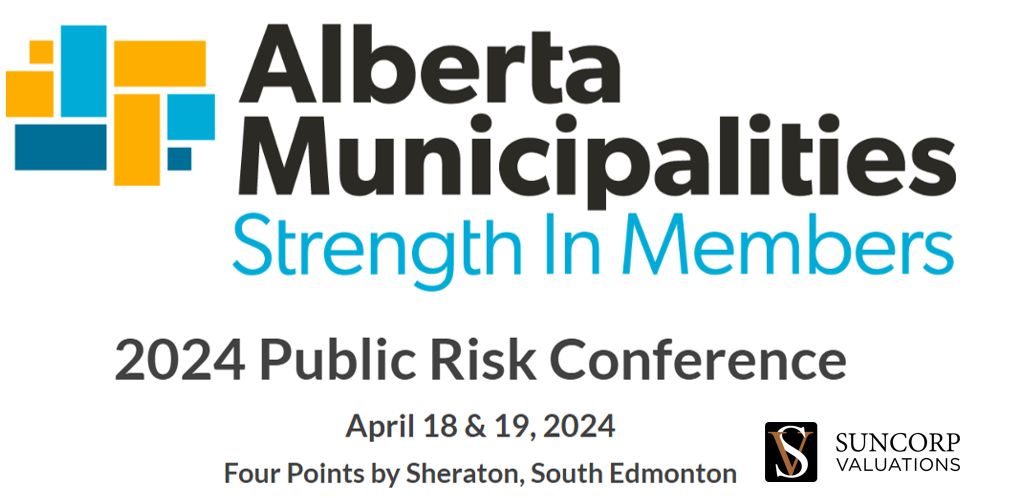
Do you need a guest speaker or presenter? Here are just a few of the companies that we presented to.
Suncorp Valuations can speak at various events on all matters related to tangible assets valuations and risk management, from insurance related topics such as construction cost trends to market value trends in specific markets to risk mitigation strategies.
If your organization is looking for guest speakers on valuation and/or risk management, please reach out and we will see what we can do to assist. Many of our presentations have been accredited for on-going education credits.

Suncorp Valuations is excited to be an exhibitor at the RISKWORLD 2024 event taking place in San Diego from May 5-8.
Come visit our President & CEO, Tom Gardiner, and Business Development Managers, Rick Dettmann and Devin Baker at booth #1352. We will have an awesome draw prize, including Costco Gift cards.
We very much look forward to seeing you all, in person, at this spectacular event!
If you haven’t registered for the event yet, there’s still time. Visit here for more details.

Join us at the Saskatchewan Association of School Business Officials (SASBO) 78th Annual Trade Show.
Come visit out team at booth #29 on April 17 from 5:00-7:00 pm. We will be there to answer any of your appraisal/risk management questions or discuss the many other services we can provide. See you there!
If you haven’t registered for the event yet, there’s still time. Visit here for more details.

Suncorp Valuations is excited to announce our participation at the 2024 SUMA Convention and Tradeshow.
Come visit our team at booth #93 from April 14-16.
Don’t miss this opportunity to network, learn, and discover how Suncorp Valuations can help with your insurance appraisal needs. We are looking forward to seeing everyone at this amazing event.
If you haven’t registered for the convention yet, there’s still time. Visit here for more details.

Suncorp Valuations is thrilled to be attending the 2024 AB MUNIS Public Risk Conference. Our Risk Management Manager, Shamair Turner, will be leading a presentation on “Loss Control” on April 18th at 2:15 pm.
Don’t miss this opportunity to network with risk professionals. We look forward to seeing you there!
If you haven’t registered for the conference yet, there’s still time. Visit here for more details.

Suncorp Valuations is excited to share that we will be attending the 2024 MIABC Risk Management conference in Vancouver. Our President, Tom Gardiner, will be attending the conference alongside our Business Development Manager, Devin Baker, who will be presenting on April 3rd from 1:00-2:00 pm on the topic of “Capital Asset Planning –Where to Begin?”
We hope to see everyone at this spectacular event!
If you haven’t registered for the conference yet, there’s still time. Visit here for more details.






